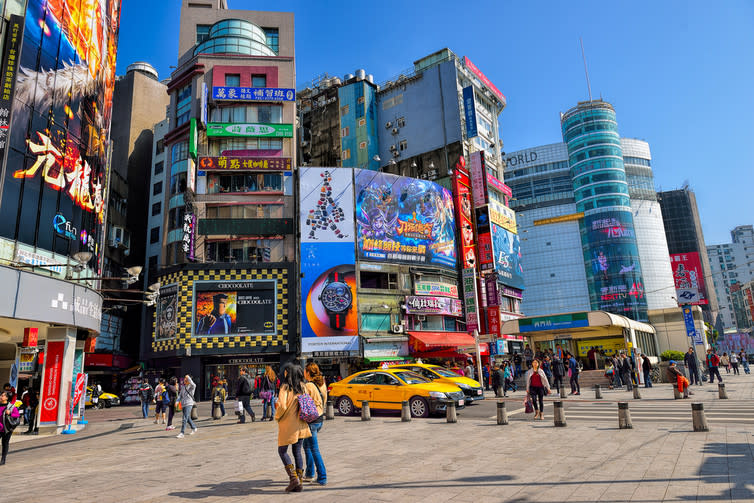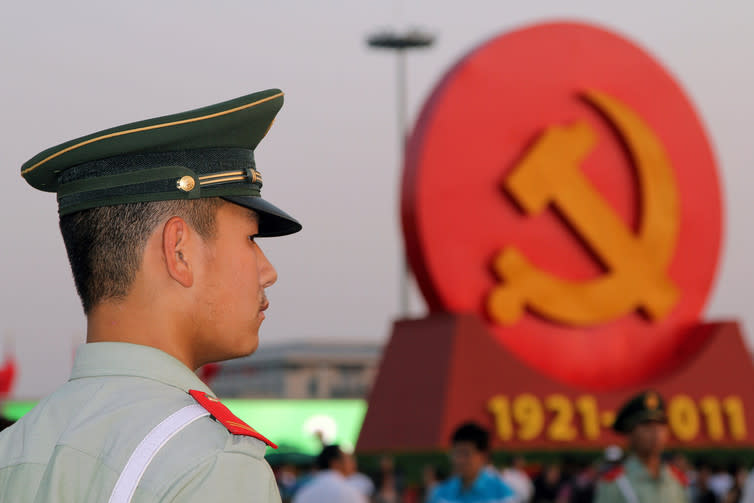Why is China so upset about Trump's Taiwan call – and could it lead to war?
The fact that Donald Trump is the first US president to have a call with his Taiwanese counterpart in nearly four decades, seriously upsetting China in the process, might come as a shock when you think that Taiwan is the world’s 22nd largest economy. The answer as to why this call has taken so long – and has caused so much trouble – is fascinating and goes back years. In fact, even though Taiwan has managed to work wonders, including manufacturing 80 per cent of the world’s computer notebooks, it somehow has failed to be recognised as an independent state by the rest of the world.
What is Taiwan’s dispute with China?
Central to the issue is Taiwan’s tense relations with China. Taiwan was born as a breakaway state out of the conflict between the communists and nationalists in China. When that civil war ended in 1950 and Mao’s communist “People’s Republic of China” was established on the mainland, the previous government of China had become self-exiled on the island of Taiwan and kept the old name of “Republic of China”.
Initially, the rest of the world was reluctant to recognise the communist regime on the mainland – it was the Cold War, after all. But as time passed, the world found it increasingly difficult to ignore a mighty China and eventually shifted its recognition from the exiled government in Taiwan to the People’s Republic of China on the mainland.
In 1977, the UN pushed out the exiled government and officially welcomed the People’s Republic of China. Part of the reason for this was the improvement in US-China relations and, two years later in 1979, the US stopped formal diplomatic relations with Taiwan, including direct phone calls between its presidents. This is the protocol that US president-elect Donald Trump seems to have – accidentally or wilfully – ignored.
Despite this, in more informal ways, Taiwan has continued to have and develop links with the rest of the world, especially after the mid-1980s, when a series of democratic reforms took place and Taiwan abandoned territorial claims to mainland China, adopting independence as an island state as its aim.
So, while the dispute between China and Taiwan started as a disagreement over who is sovereign over China as a whole, it has transformed into a disagreement over who is sovereign over Taiwan. China argues that the island is a Chinese province, while Taiwan maintains that it is – and should be recognised as – independent.
On occasion, this dispute has led to threats of war.

Unique Diplomacy
As an unrecognised state, and with China’s hostility in mind, Taiwan has had to be rather inventive in the ways it deals with the rest of the world. One way in which it has done so is by being “flexible” in the way that it presents itself. For example, Taiwan takes part in many international organisations, such as the World Trade Organisation, as “Chinese Taipei”.
It also uses this name to take part in events like the Olympics Games – and at Rio 2016, weightlifter Hsu Shu-ching won the “state’s” second ever gold medal (its first came for Taekwondo at Athens 2004). Using the name Taipei rather than Taiwan has allowed it to integrate with the rest of the world, (usually) without strong objections from China.
Successive Taiwanese governments have also encouraged international links between Taiwanese and other international NGOs. Taiwan likes to work with NGOs because interacting with them does not mean that you recognise the government, upsetting China in the process – a problem Trump’s call with the Taiwanese President Tsai Ing-wen seems to have done.
Lastly, Taiwan’s strong economy has allowed it to use what Timothy Rich refers to as “checkbook diplomacy”. Taiwan has offered financial aid or economic links to certain countries, such as some Caribbean islands, in exchange for more recognition. In these ways, Taiwan has managed to integrate globally – and its success at this is precisely why one of the most popular Google searches since the Trump call is “Is Taiwan a country?”.
So is Taiwan a country?
There are two ways to judge whether an entity is a state. The first is to check whether the entity looks like a state: is there a working government, a clear territory and a population that recognises this government? Based on this, yes, Taiwan must be a state.
However, perhaps more important is whether you are seen as a state. Historically, we have tended to regard the UN as the handmaiden of state recognition – that’s why we say that South Sudan, which joined the UN in 2011, is the youngest state in the world today. Consequently, because Taiwan is unrecognised by the vast majority of UN member states, it is not regarded by most as a state.

Could Trump’s call lead to war?
And this is exactly why Trump’s phone call matters. While economic and semi-formal political links between the US and Taiwan are actually very strong – for example, Taiwan is the US’s 10th largest trade partner and the US supplies Taiwan with weapons – Washington, like most of the rest of the world, does not formally recognise the Taiwanese government. Relations with China are seen as too important to do so. But by breaking tradition and talking to the Taiwanese president, Trump has upset this fine balance – and China isn’t happy. In fact, they have issued a formal diplomatic protest.
But could this lead to war? Probably not. This is also because it is unlikely that Taiwan will use this opportunity to further their independence claims and therefore probe a Chinese reaction. In recent times, Taiwanese leadership has been committed to the “Three Noes” policy: no independence, no unification (with China), and no use of force. This has allowed Taiwan to maintain good relations with the rest of the world, including with China, leading to greater cooperation between the two.
But symbols do matter and China seems to have interpreted the call as an indirect recognition of the Taiwanese government and, equally, a challenge to Chinese claims over the island. The months to come will test the impact this phone call has had. But interestingly for a conflict during which it has always been difficult to figure out how China or Taiwan will react next, it is now the US administration that may prove to be the most unpredictable.
This article was originally published on The Conversation. Read the original article.

George Kyris does not work for, consult, own shares in or receive funding from any company or organisation that would benefit from this article, and has disclosed no relevant affiliations beyond the academic appointment above.

 Yahoo Sport
Yahoo Sport 





































